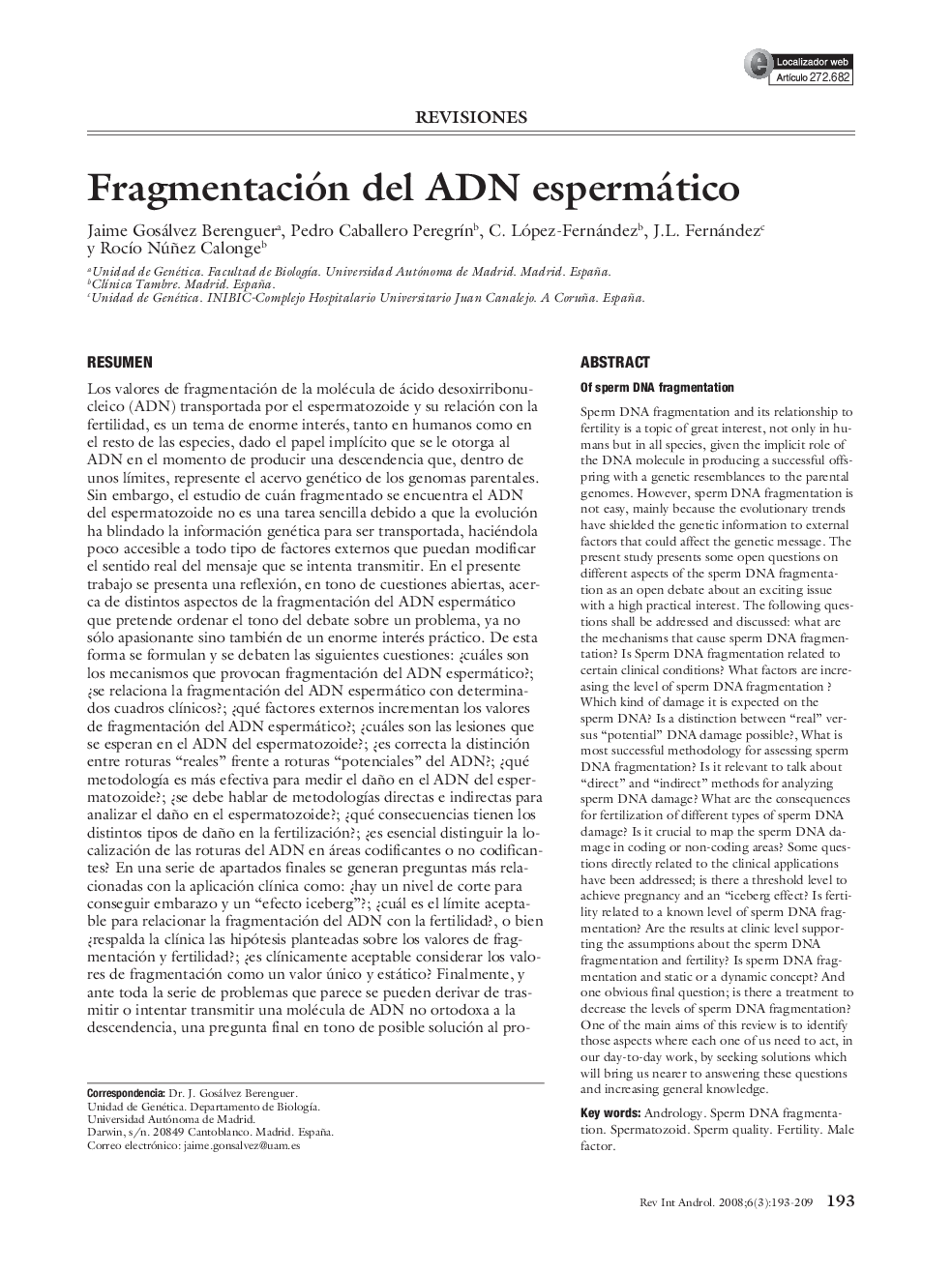| Article ID | Journal | Published Year | Pages | File Type |
|---|---|---|---|---|
| 916126 | Revista Internacional de Andrología | 2008 | 17 Pages |
Abstract
Sperm DNA fragmentation and its relationship to fertility is a topic of great interest, not only in humans but in all species, given the implicit role of the DNA molecule in producing a successful offspring with a genetic resemblances to the parental genomes. However, sperm DNA fragmentation is not easy, mainly because the evolutionary trends have shielded the genetic information to external factors that could affect the genetic message. The present study presents some open questions on different aspects of the sperm DNA fragmentation as an open debate about an exciting issue with a high practical interest. The following questions shall be addressed and discussed: what are the mechanisms that cause sperm DNA fragmentation? Is Sperm DNA fragmentation related to certain clinical conditions? What factors are increasing the level of sperm DNA fragmentation ? Which kind of damage it is expected on the sperm DNA? Is a distinction between “real” versus “potential” DNA damage possible?, What is most successful methodology for assessing sperm DNA fragmentation? Is it relevant to talk about “direct” and “indirect” methods for analyzing sperm DNA damage? What are the consequences for fertilization of different types of sperm DNA damage? Is it crucial to map the sperm DNA damage in coding or non-coding areas? Some questions directly related to the clinical applications have been addressed; is there a threshold level to achieve pregnancy and an “iceberg effect? Is fertility related to a known level of sperm DNA fragmentation? Are the results at clinic level supporting the assumptions about the sperm DNA fragmentation and fertility? Is sperm DNA fragmentation and static or a dynamic concept? And one obvious final question; is there a treatment to decrease the levels of sperm DNA fragmentation? One of the main aims of this review is to identify those aspects where each one of us need to act, in our day-to-day work, by seeking solutions which will bring us nearer to answering these questions and increasing general knowledge.
Keywords
Related Topics
Health Sciences
Medicine and Dentistry
Surgery
Authors
Jaime Gosálvez Berenguer, Pedro Caballero PeregrÃn, C. López-Fernández, J.L. Fernández, RocÃo Núñez Calonge,
